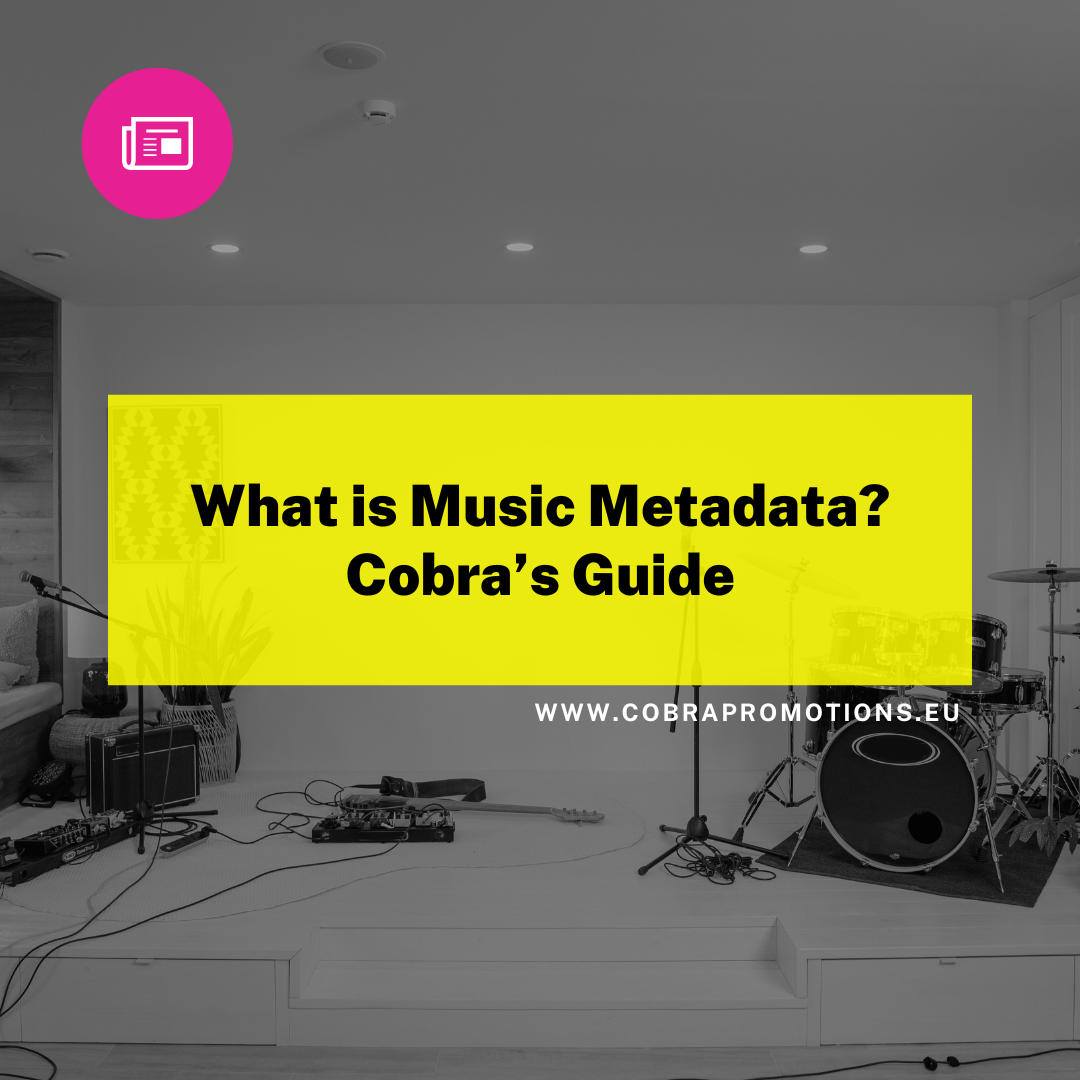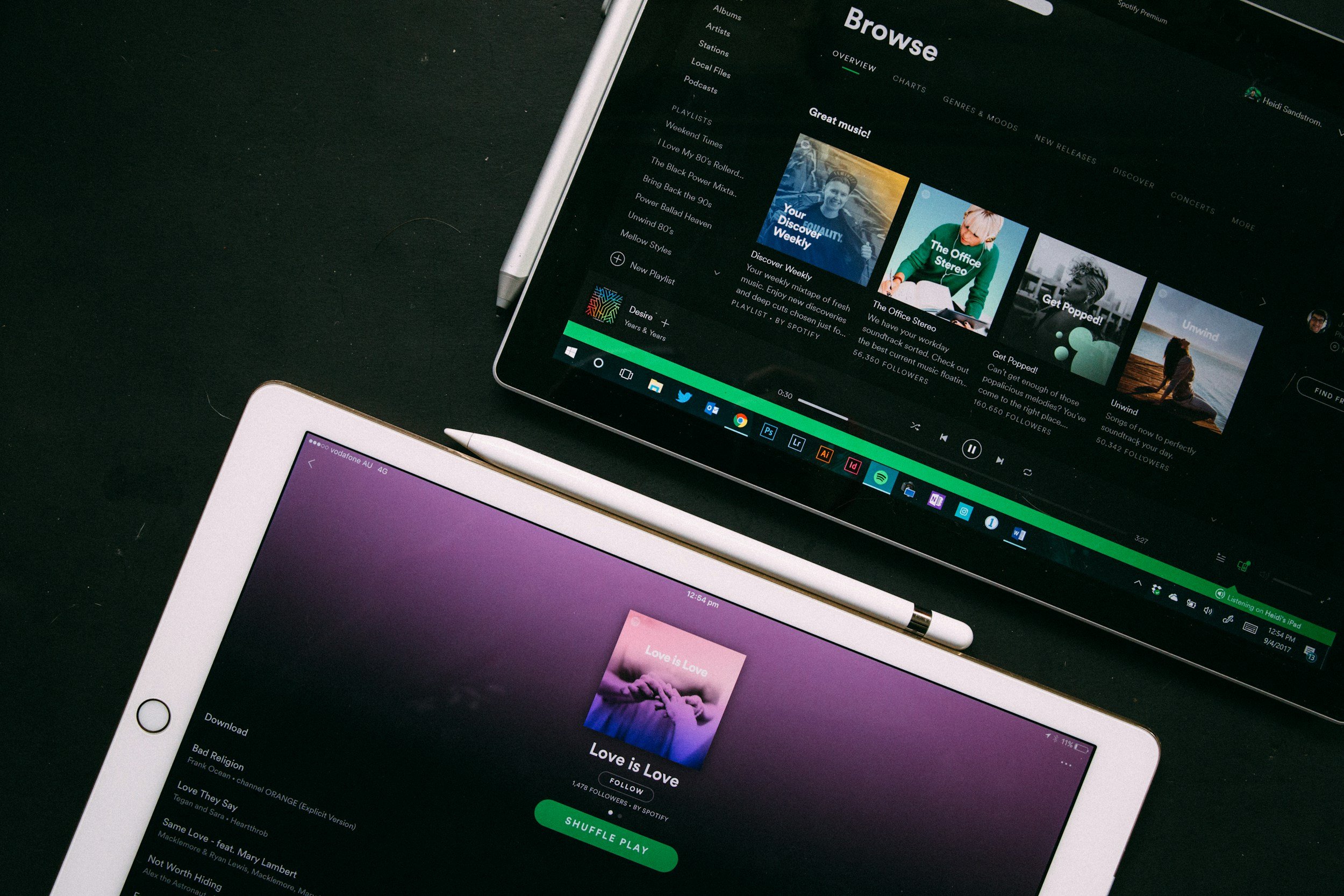What is Music Meta Data? Cobra’s Guide
Whether you’re an independent act or a signed one, knowing about meta data best practices will help keep your creative output organised.
What is Music Meta data?
Music meta data is data used to categorise artists and their discography. For example, when you are uploading an album for distribution, information such as your artist name, album name, track names, cover art, record label name, genre and release date are all pieces of meta data.
Why is Meta data Important?
A lack of information or meta data associated with your release may impact your searchability online and on streaming platforms, which can affect your discoverability. So it’s best to fill out as much accurate information as you can! The correct meta data will help digital music libraries organise your music, and is crucial in terms of royalty collection and distribution. In order for artists or rights holders to receive the proper compensation for their music, Performance Rights Organisations (PROs) need information about who they are collecting a payment for, and for what type of release or performance. Just as if you were organising a bank transfer, you would want the exact details of the receiver and as much information as possible in order to keep the transaction in your records.
Music meta data also facilitates accurate music recommendations, such as personalised playlists on Spotify. If a substantial amount of meta data is populated, streaming services can analyse a listener’s preferences and offer appropriate recommendations, which might be your music.
Is Music Meta data more important for an Independent Artist or Signed Artist?
Music meta data is important for everyone that releases music. For independent artists, using correct meta data may most influence your:
Discovery and Visibility: Making your music as easily searchable as it can be across all streaming platforms and apps, helping you to expand your audience reach.
Royalty Collection: If you are, for an example, an Irish-based artist, hopefully you are a member of IMRO - Ireland’s most prominent royalty-collection organisation. They need all of your release information in order to track where your music has been played, and that your rights are protected. If your release was created with a co-writer or producer, their details would also be an important piece of meta data for your distributor and PRO to know.
Professionalism: Well-curated meta data is a good professional touch to an independent artist's work. The music industry is constantly evolving, so it’s important to stay up to date with new trends and practices that can make your life easier, and help your career development in the long run.
For a signed artist, much of your meta data will be the responsibility of your label. It may influence:
Promotion and Marketability: Accurate meta data is still crucial for discoverability and royalty collections, as it is for an independent artist.
Contractual Obligations: Signed artists may have contractual obligations regarding meta data accuracy or completeness, which is often managed by the record label or management team.
Consistency: To upkeep your brand image or track creative changes (such as venturing into new styles), meta data is very important.
What types of Meta data are there?
Music meta data can be broadly categorised into two different types: Descriptive meta data and Administrative meta data.
Descriptive Meta Data includes details that describe the main information about the music, such as the:
Song title or album name
Artist name
Genre
Administrative Meta Data includes business or legal-related pieces of data, including:
Copyright information
International Standard Recording Code (ISRC)
Universal Product Code (UPC)
Other publishing information
Administrative meta data ensures that the necessary rights and permissions are in place, to help simplify the process of royalty collection and distribution, and make sure that you get paid. There are also smaller types of meta data, including structural and technical metadata:
Structural Meta Data includes:
Song duration
Song bitrate (The rate of data transfer in a digital audio file)
The sample rate (The number of samples of audio carried per second)
and Technical Meta Data includes:
The file format (MP3, WAV, FLAC).
The compression type (information about how the audio data is compressed)
The resolution (the quality of the audio file, often in bits per sample and samples per second).
Meta data Best Practices
Inputting music meta data correctly is all about attention to detail. Make sure that all of the typical information is correct - the artist name, album name, genre, etc. This information should be in a consistent format across all platforms, for consistency across your discography.
If applicable, you can consider adding additional meta data such as mood, tempo, key signature and other information to boost the discoverability of your release. These small details can help algorithms understand the characteristics of your music, and recommend it to users who have shown similar preferences. Additionally, providing high-quality album artwork and a strong artist biography always looks good, and is also important for PR purposes.
Be sure to regularly audit your meta data, to keep your information up to date and stay in line with industry standards.
Music Meta data in Streaming Platforms
Streaming platforms such as Spotify and Apple Music heavily rely on meta data to provide a seamless user experience, for example, through playlists like Spotify's "Discover Weekly" and "Release Radar”. Meta data influences features like search algorithms, personalised recommendations, and artist profiles, allowing listeners to easily search for their favourite artists and explore related artists and genres. This is where genre and compositional information proves to be quite important.
When meta data is well-structured and optimised, it can increase the chances of your music being discovered by new listeners. When your meta data accurately represents your music's characteristics, it helps algorithms make informed decisions about which songs to recommend to users - hopefully leading to more streams, and more importantly, more dedicated fans.
How to Optimise Music Meta data for SEO
Search Engine Optimisation (SEO) also applies to music meta data, not just websites and blogs. Optimising your meta data will positively influence your visibility in search results, for example, on Google. Try to incorporate keywords that are relevant to your release strategically into your meta data, for example, in the song title or song description. There’s no need to overdo this, as you don’t want your metadata to appear as spam! Keep it light.
Tools and Software for Handling Music Meta data
If you are a fully independent act or an artist with a large catalogue, music meta data might be a bit daunting, but there are many tools to help the process - though a bit of time and patience would be most important. Many distributors offer their own guide to inputting meta data correctly, though your chosen distributor process should hopefully be as accessible as can be. Tools such as MusicBrainz, and Mp3tag offer functionalities for editing and enhancing music meta data at a granular level, e.g. adding or modifying metadata fields, updating album artwork, and ensuring consistency across your music collection.
Populating your metadata is becoming standard industry practice for music-releasers, and a knowledge of what it does and what you can do will hopefully continue to improve algorithms, get your music in front of the right people, and make sure you get an accurate royalty payout.
If you enjoyed this article, you might like:
The Perfect Pitch: Nailing Music PR
Cyber Crime in the Music Industry: Tackling Streaming Fraud
Music PR: How to build a CRM & Find Contacts
The Ultimate Press Release: What You Need
Cobra Promotions is proudly affiliated with DROP ROCKET




More fantastic Irish and irish-based folk artists combining trad, pop and rock elements into their sound.